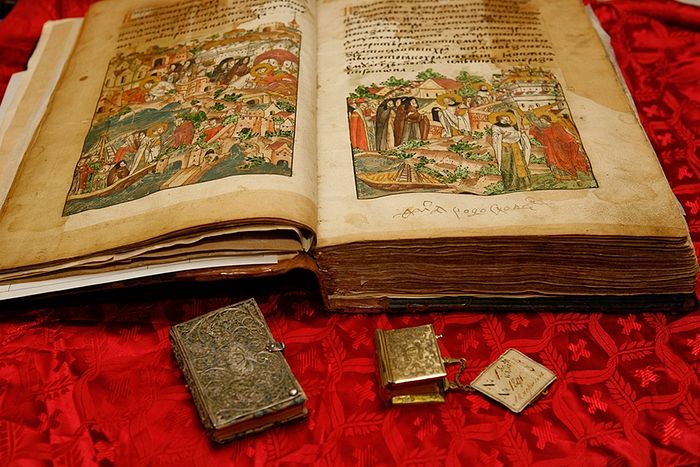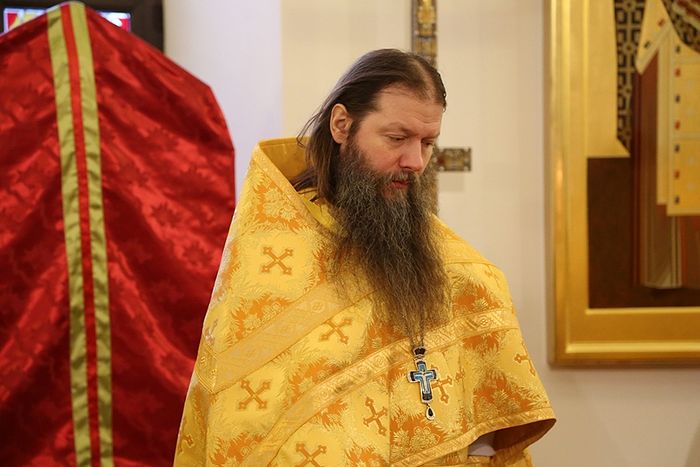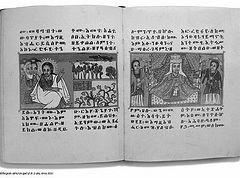The identity of every one of us is unique and, moreover, can never be reproduced. It would seem that all have a soul and body, with much in common with one another to be found, but all the same, appearance, poise, and manner of dress are always individual, and especially our language, speech, words. Tell me a few words and I will tell you much about your soul.
Truly, our words, like it or not, reveal what is hidden deep within our hearts; or, as says the Gospel, out of the abundance of the heart the mouth speaketh (Mt. 12:34). In what here is the enigma? To say briefly, the word reveals the mysteries of the mind and heart. The word reveals a man’s way of thinking. The word bears witness to which force—good or evil—lives in the human soul.
If your word be ingratiating and deceiving, brimming with the spirit of pride, vexation, or petulance, if your word be filled with the venom of condemnation, then how much more full of this is the heart, from the abundance of which you speak, opening but a smidgeon of that which you conceal within your miserable soul. And conversely, when you hear a word true and clear, a word good and sprightly, comforting and conciliating, it remains for us only to guess at the spiritual treasure, which is the soul of the one speaking. However, Christ the Savior instructs us to discern a man not by word alone, but also by deed. From their fruits ye shall know them.
Our mindset—or worldview—just like our language, depends greatly upon our manner of life. Conducting a life that is reprehensible and disgraceful, acting dishonestly and unconscionably, a man will choose a philosophy in accordance with his own spoiled disposition. And no matter how he tries to disguise himself by unctuous and grandiloquent words, the cat is out of the bag. A cruel and impure heart will always express itself and begrudgingly unfold, smiting and biting suddenly its simplehearted listener with some caustic, cynical or indecent wordlet, as if having fallen off unexpectedly from some sycophantic and high-falutin’ tongue.
And do you know that by means of a word you can heal, and, moreover, cultivate and nourish a soul pure and beautiful? From the outset, from your language (or, as they say, lexicon) must be deleted all words offensive and wounding to our moral sense. May no such putrescent words escape from your mouth. The holy apostle of Christ gives us this precept. As long as we permit such words to profane and pollute ours and other’s hearing, there can be no question of any moral, God-pleasing life. I tell you that for every idle word thatpeople say, on the Day of Judgment they will give answer; for you will be justified by your words or condemned by them, warns the Gospel.
When we have worked well upon ourselves and our lives, introducing into our consciousness, mind, and heart words true, holy, and incorruptible: God, the Lord, mercy, chastity, innocence, faith, true, peace, joy and all the rest—then our manner of thought will change and our hearts will become open to the influence of another power—the grace of God, which strengthens a Christian in his striving to fulfill the evangelical commandments. But how, you ask, can we introduce these wondrous words into our consciousness, how can we cleanse the mind by them, that the Holy Spirit would consecrate our hearts, thoughts, yearnings and deeds? The answer is simple: pray. All the prayers of the Orthodox Church, beginning with the Lord’s Prayer, are holy links that unite this word-bearing reasonable creation—man—with God the Word.
Ivan Sergeevich Turgenev, a great author of this great earth, deemed our Russian language mighty and beautiful, as within itself it unites, as in a single stream, two living currents—the element of the sacred Church Slavonic language and the element of the precise, expressive, succinct, and wise folk, conversational language, from the words of which was formed, not without Pushkinian genius, the Russian literary language. And then Mikhail Vasilievich Lomonosov wrote on the benefits of reading Church books to young people, and in Rus’ of old the Book of Hours and the Psalter were the textbooks for those beginning to explore grammar, and those acquiring practical reading competency.
I am convinced, that if at least one of our readers has a personal prayer book (as we call a collection of morning, evening, and other prayers),[1] he already does not allow himself to use any vituperative word, or to pronounce the name of God in vain or carelessly, as you hear all too often, unfortunately, in the mouths of modern men.
We all recall from childhood those adult admonitions on the so-called magical words: hello, please, thank you. But perhaps not all have delved into their inner meaning. In the past, uttering a greeting was to heartily wish your interlocutor long life in health and prosperity;[2] using the word “please,” was to express a reverential attitude to a man older in age and wise in life experience. Namely with the words “Welcome, elder” a traveler, exhausted from the road, was welcomed into your domicile in antiquity, or the invited was asked to sit in a place more honorable, nearer to the head of the family.[3] “Christ save you, Lord save you, God save you” is what infuses our modern “thank you”—not a simple verbal gratitude, nor a formula of courtesy, but a prayer for salvation, for the attainment of mercy from the Lord on the Day of Judgment.[4] I hope it is becoming clear that using these words “with meaning,” we warm our speech with the breath of Divine grace, make our converse with others truly warm and cordial, and draw upon our own souls the mercy of God.

How great the gift of words; how lamentable the consequences of this gift’s misuse. The tongue, gifted us by the Creator for the glorification of His name and the increase of good in dialogue with one another, can be the cause of condemnation unto death eternal for the impenitent sinner! And just think—the truth of God, as the Gospel promises, will from each of us demand a reckoning for our every idle word! For any word, empty, meaningless, spoken without meaning and without avail, can be chronicled in the category of “idle.” What to say about the rest—the sharp, caustic, obscene, vulgar, and wicked?! This is why there developed the saying: “My tongue—my enemy.” Thankfully, our readers know that the Merciful Lord in the Mystery of Confession forgives all, if you repent with the fervent intent to reform.
In conclusion, I would like to offer to you three small, golden rules for the tongue. Who fulfills them ceases to sin by the tongue, which, you will agree, is no small thing.
First rule.
“Think about what you say.” In other words, weigh in your mind that word which finds itself on the tip of your tongue. Reflect as you should, and then simply speak. And never regret it.
Second rule.
“Never say that which you don’t think.” Don’t be disingenuous, and don’t prevaricate. Better to remain silent than to speak untruth.
Third rule.
“Do not say all that you are thinking.” This rule does not call us, as, perhaps, it seems to some, to hypocrisy and opportunism, but it advises to properly value our collocutor and the position of his soul. Is he ready today to hear from you those words, which three days later would peacefully lay upon his heart? Will they bring to him the benefit you intended to speak? Does he need to hear your opinion on this question? And won’t you disappoint anyone, won’t you release another’s secrets with your careless word? And dozens of other questions could justify this rule. In a word, do not say all that you are thinking.
Some rhetoricians reduced these three cited rules into one golden formula for wise speech: “Think about what you say, to whom you say it, why you are saying it, where you are saying it, and what will be the consequences of it.”
We close our reflections upon language and word with a simple wish: read more kind, wise, good, and above all, holy books!






